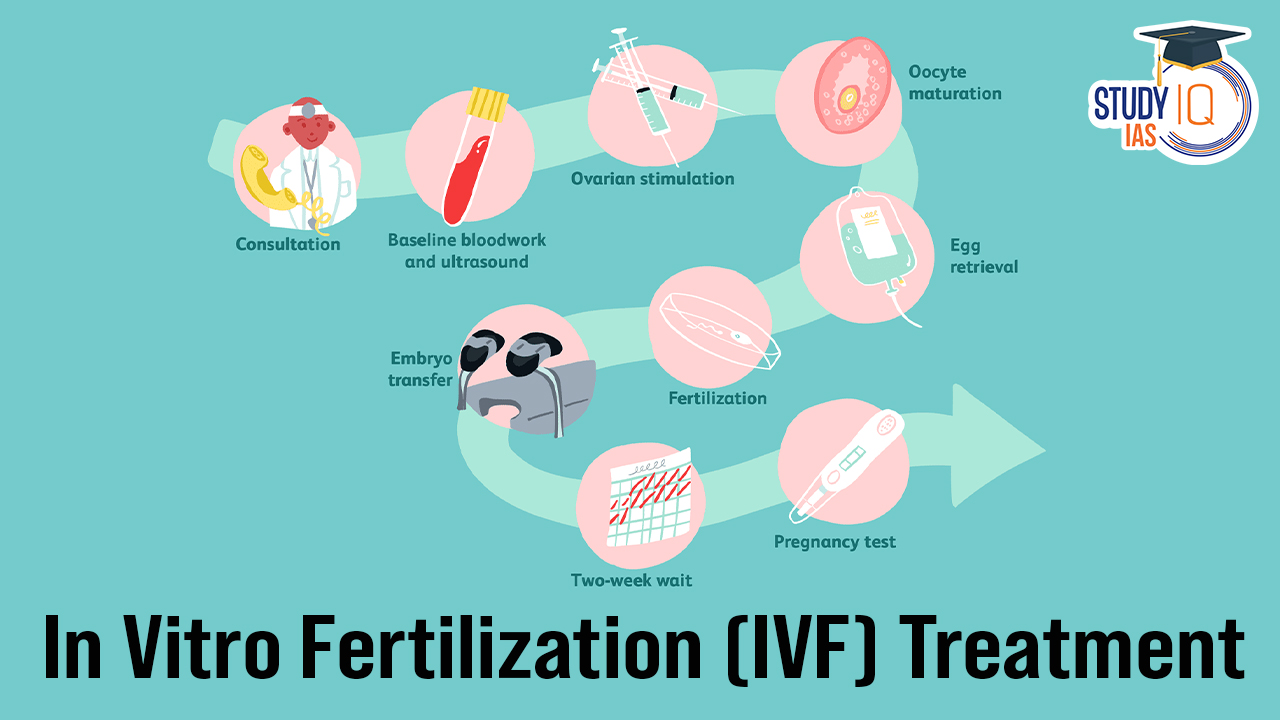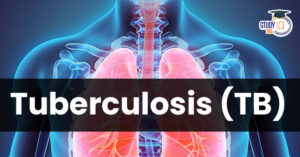Table of Contents
Centre’s Notice to Punjab Over Sidhu Moosewala’s Mother’s IVF Treatment
The Ministry of Health and Family Welfare has requested a report from the Punjab government regarding the in-vitro fertilization (IVF) treatment received by Charan Kaur (mother of the late Punjabi singer and rapper Sidhu Moosewala).
About In-Vitro Fertilization Treatment
- Purpose: Helps individuals or couples facing infertility challenges conceive. Among Assisted Reproductive Technologies (ART), IVF offers the highest success rate.
- Process:
- Egg retrieval from ovaries.
- Manual sperm fertilization of eggs in a laboratory setting.
- Transfer of fertilized egg (embryo) into the uterus for implantation.
- Options for genetic material:
- Couple’s own eggs and sperm.
- Eggs, sperm, or embryos from donors (known or anonymous).
- Factors to Consider For Successful IVF:
- Reproductive history.
- Age (particularly maternal age).
- Cause of infertility.
- Lifestyle habits.
- Applications:
- Blocked or damaged fallopian tubes.
- Male infertility (low sperm count/motility).
- Ovulation disorders, premature ovarian failure, uterine fibroids (females).
- Absence of fallopian tubes.
- Genetic disorders in intended parents.
- Unexplained infertility.
Age Limit for IVF Treatment
The age limit for IVF treatment in India is dictated by the Assisted Reproductive Technology (ART) (Regulation) Act, 2021. Here’s a breakdown:
- Women: According to the Act, women can receive IVF treatment if they are between 21 and 50 years old.
- Men: There’s a slightly higher limit for men. They can undergo IVF procedures between 21 and 55 years old.
Assisted Reproductive Technology (ART)
- The Assisted Reproductive Technology (Regulation) [ART] Act, 2021 defines ART to include all techniques that seek to obtain a pregnancy by handling the sperm or the oocyte (immature egg cell) outside the human body and transferring the gamete or the embryo into the reproductive system of a woman.
- Examples of ART services include gamete (sperm or oocyte) donation, in-vitro fertilisation (fertilizing an egg in the lab), and gestational surrogacy (the child is not biologically related to the surrogate mother).
- ART services will be provided through:
-
- ART clinics, which offer ART-related treatments and procedures, and
- ART banks, which store and supply gametes.
Key provisions of the Assisted Reproductive Technology (Regulation) [ART] Act, 2021
| Regulation of ART clinics and banks |
|
| Conditions for gamete donation and supply |
|
| Eligibility criteria for commissioning parties
{Section 21(G)} |
|
| Conditions for offering ART services |
|
| Rights of a child born through ART |
|
| National and State Boards |
|
| Offences And Penalties |
|
Challenges Related to ART
- Limited Access: Unmarried couples (heterosexual), LGBTQ+ individuals and couples are excluded.
- Reduced Options: Only applicable to infertile couples, restricting options for others.
- Unregulated Costs: No price control for ART procedures.
- Unethical Counselling: Clinic ethics committees might not provide objective advice.
- Weak Regulations: Federal and state guidelines may not be strictly enforced.
- Lack of Oversight: Independent review needed beyond clinic committees.
- Inadequate Consideration: Ethical, legal, and social concerns not fully addressed.
Way Forward
- Independent Counselling: Counseling should be provided by independent organisations rather than by the clinics’ own ethics committees.
- Government Directives: The federal and state government guidelines should be mandatory for all ART centres, in the interest of the nation, international relations, and public welfare.
- Thorough Evaluation: All constitutional, medical-legal, ethical, and regulatory concerns need to be meticulously reviewed before affecting the lives of millions.


 AI and its Regulation in India, Limitati...
AI and its Regulation in India, Limitati...
 Tuberculosis (TB), Symptoms, Causes and ...
Tuberculosis (TB), Symptoms, Causes and ...
 Places in News for UPSC 2025 for Prelims...
Places in News for UPSC 2025 for Prelims...





















